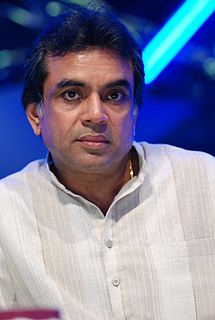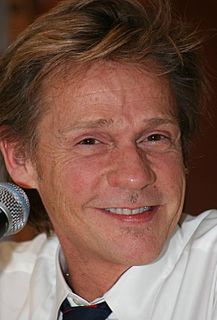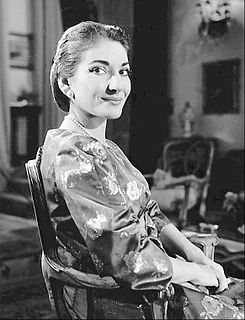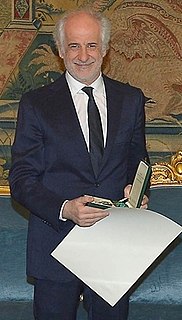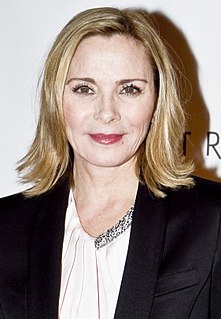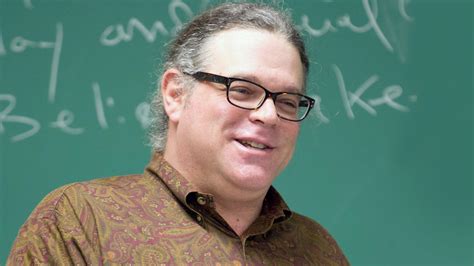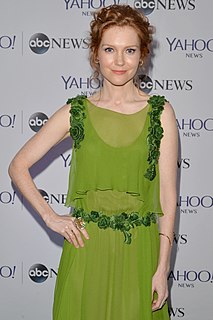A Quote by Paresh Rawal
In theatre, after the curtain rises, it's all about me. I can either elevate myself with my performance or be mediocre.
Related Quotes
For me, running is both exercise and a metaphor. Running day after day, piling up the races, bit by bit I raise the bar, and by clearing each level I elevate myself. At least that’s why I’ve put in the effort day after day: to raise my own level. I’m no great runner, by any means. I’m at an ordinary – or perhaps more like mediocre – level. But that’s not the point. The point is whether or not I improved over yesterday. In long-distance running the only opponent you have to beat is yourself, the way you used to be.
At the Neighborhood Playhouse School of Theatre, Sanford Meisner said, 'When you go into the professional world, at a stock theatre somewhere, backstage, you will meet an older actor, someone who has been around awhile. He will tell you tales and anecdotes, about life in the theatre. He will speak to you about your performance and the performances of others, and he will generalize to you, based on his experience and his intuitions, about the laws of the stage. Ignore this man!'
To be honest, I am not theatre-trained and though I am confident in my skill set, to do theatre requires a better-tuned set of muscles and I sometimes defer to actors who are better trained. But at the times I do want a shot, I'll go for it, especially if the piece speaks to me and the opportunity comes up. The immediate response from a theatre audience is so thrilling, affirming, and soul-feeding; to know how you've affected an audience at curtain can be ego-blowing, both good and bad.
I was a bit odd as a kid, because there were so little outlets for me. There was no theatre except for the odd community theatre and school shows. The only movie theatre was at the Canadian Forces Base nearby in Comox, so it either showed kiddie flicks for the families and restricted stuff for the men.
I mean there’s a certain finality about a movie, when it’s done it’s done – that raised eyebrow in that moment will always be that raised eyebrow. Whereas a play only lives as a blueprint for a performance on any given night. There’s a reason you can eat popcorn and watch a movie and you can’t do that in the theatre. Theatre you have to lean in, you have to tune your ear to the stage and participateI respond to heat. And blood. And humanity. The cold experience is not for me. I’ve always enjoyed all the real people in a room together in the theatre.
To move from a discussion of the early relationship between theatre and television to an examination of the current situation of live performance is to confront the irony that whereas television initially sought to replicate and, implicitly, to replace live theatre, live performance itself has developed since that time toward the replication of the discourse of mediatization.
I went to college and did theatre. After that, I spent about three years in Seattle doing French theater and community theater and sorting it all out. Then I applied to graduate school and got accepted, so I started pursuing my master's in theatre at the American Conservatory Theatre in San Francisco.
In December 1989, my mother died very suddenly, and that sparked a re-evaluation of what I was doing, and I realized I was mediocre at everything. I was a mediocre IBM employee, I was a mediocre entrepreneur, I was a mediocre artist. I decided that, although my mom wouldn't be around to see it, I wanted to be great at something.
